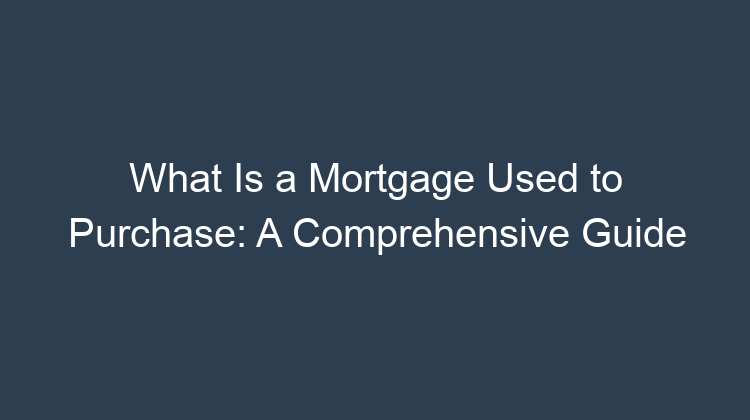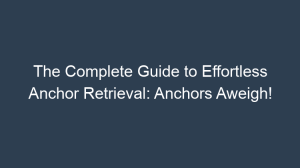A mortgage is a loan that enables individuals or entities to purchase real estate properties. It is a standard practice in real estate transactions, providing buyers with the financial means to acquire properties while allowing them to make regular payments over a predetermined period. Mortgages offer various benefits, including security for the lender, enabling homeownership for individuals who may not have the upfront cash to purchase a property, and stimulating the real estate market. Mortgages involve several key components, such as the principal amount, interest rate, loan term, and regular payments.
Mortgages are typically secured by the property being purchased. This means that if the borrower defaults on their payments, the lender can foreclose on the property and sell it to recover the outstanding loan amount. However, the foreclosure process can be lengthy and costly for both the lender and the borrower, so it is generally in both parties’ best interests to avoid this outcome.
Mortgages are an essential part of the real estate market. They allow people to buy homes and other properties that they otherwise would not be able to afford. Mortgages also help to stimulate the economy by providing jobs and generating tax revenue. The mortgage market is heavily regulated by the government, which helps to protect both borrowers and lenders.
Types of Mortgages
Fixed-Rate Mortgages
Fixed-rate mortgages are the most common type of mortgage. With this type of mortgage, the interest rate remains the same for the entire life of the loan. This provides borrowers with peace of mind knowing that their monthly payments will not change. However, fixed-rate mortgages typically have higher interest rates than adjustable-rate mortgages.
Adjustable-Rate Mortgages (ARMs)
Adjustable-rate mortgages (ARMs) have interest rates that can change over the life of the loan. ARMs typically have lower initial interest rates than fixed-rate mortgages, but the interest rate can increase over time. This can make ARMs risky, especially if interest rates rise significantly. However, ARMs can be a good option for borrowers who are only planning to stay in their home for a short period of time.
Government-Backed Mortgages
Government-backed mortgages are mortgages that are insured or guaranteed by the government. This makes them less risky for lenders, which means that borrowers can often get lower interest rates on these types of mortgages. The most common types of government-backed mortgages are FHA loans, VA loans, and USDA loans.
Mortgage Application Process
Step 1: Get Pre-Approved
The first step in the mortgage application process is to get pre-approved for a loan. This means that a lender will review your credit history and income to determine how much money you can borrow. Getting pre-approved will give you a better idea of what you can afford to spend on a home.
Step 2: Find a Home
Once you are pre-approved for a loan, you can start looking for a home. You can search for homes online, through a real estate agent, or by driving around neighborhoods. When you find a home that you are interested in, you will need to make an offer.
Step 3: Close on the Loan
Once your offer has been accepted by the seller, you will need to close on the loan. This involves signing a number of documents and paying various fees. Once you have closed on the loan, you will be the official owner of the home.
Mortgage Interest Rates
Factors That Affect Mortgage Interest Rates
There are a number of factors that can affect mortgage interest rates, including the current economic climate, the demand for mortgages, and the credit history of the borrower. Generally speaking, mortgage interest rates tend to be lower when the economy is strong and demand for mortgages is low. Borrowers with good credit histories will typically qualify for lower interest rates than borrowers with poor credit histories.
How to Get a Lower Mortgage Interest Rate
There are a number of things you can do to try to get a lower mortgage interest rate, including shopping around for the best interest rate, improving your credit score, and making a larger down payment. You can also consider getting a government-backed mortgage if you qualify.
The Importance of Mortgage Interest Rates
Mortgage interest rates can have a significant impact on the monthly payments you will make on your mortgage loan. A lower interest rate can save you a lot of money over the life of the loan. That’s why it is important to shop around for the best interest rate and take steps to improve your credit score before you apply for a mortgage.
Mortgage Costs
Loan Term
The loan term is the length of time that you will have to repay your mortgage. The most common loan terms are 15 years, 20 years, and 30 years. The shorter the loan term, the higher your monthly payments will be, but you will pay less in interest overall. The longer the loan term, the lower your monthly payments will be, but you will pay more in interest overall.
Down Payment
A down payment is a sum of money that you pay upfront when you purchase a home. The size of your down payment will affect the amount of money that you need to borrow from the lender. The larger your down payment, the less money you will need to borrow, and the lower your monthly payments will be.
Closing Costs
Closing costs are the fees that you will pay when you close on your mortgage loan. These fees can include the appraisal fee, the loan origination fee, and the title insurance fee. Closing costs typically range from 2% to 5% of the purchase price of the home.
Mortgage Refinancing
When to Refinance Your Mortgage
There are a number of reasons why you might want to refinance your mortgage, including getting a lower interest rate, shortening your loan term, or cashing out some of the equity in your home. Refinancing can be a good way to save money on your monthly mortgage payments or to get access to cash for other purposes.
How to Refinance Your Mortgage
To refinance your mortgage, you will need to apply for a new mortgage loan. You will need to provide the lender with your financial information, including your income, debts, and assets. The lender will then review your application and determine if you qualify for a new loan. If you are approved for a new loan, you will need to close on the loan and pay the closing costs.
Benefits of Refinancing Your Mortgage
There are a number of benefits to refinancing your mortgage, including getting a lower interest rate, shortening your loan term, or cashing out some of the equity in your home. Refinancing can be a good way to save money on your monthly mortgage payments or to get access to cash for other purposes.
FAQ
What is the purpose of a mortgage?
A mortgage is a loan that is used to purchase real estate property. It is a standard practice in real estate transactions, providing buyers with the financial means to acquire properties while allowing them to make regular payments over a predetermined period.
What are the different types of mortgages?
There are various types of mortgages available, including fixed-rate mortgages, adjustable-rate mortgages, and government-backed mortgages. Each type of mortgage has its own unique features and benefits, so it is important to compare them carefully before making a decision.
What is the mortgage application process?
The mortgage application process typically involves getting pre-approved for a loan, finding a home, and closing on the loan. It is important to provide accurate and complete information during the application process in order to increase the chances of approval.
What factors affect mortgage interest rates?
There are several factors that can affect mortgage interest rates, including the current economic climate, the demand for mortgages, and the credit history of the borrower. Generally speaking, mortgage interest rates tend to be lower when the economy is strong and demand for mortgages is low.
What are the costs associated with a mortgage?
There are a number of costs associated with a mortgage, including the loan term, the down payment, and the closing costs. The loan term is the length of time that the borrower has to repay the loan, while the down payment is a sum of money that is paid upfront when purchasing a home. Closing costs are the fees that are paid when closing on the loan, and they can include the appraisal fee, the loan origination fee, and the title insurance fee.
Conclusion
Taking out a mortgage is a big financial decision, so it is important to understand all of the terms and conditions before signing on the dotted line. Mortgages can be a great way to purchase a home, but it is important to do your research and choose the right mortgage for your individual needs. By understanding the different types of mortgages, the mortgage application process, and the costs associated with a mortgage, you can make an informed decision about whether or not a mortgage is the right option for you.







